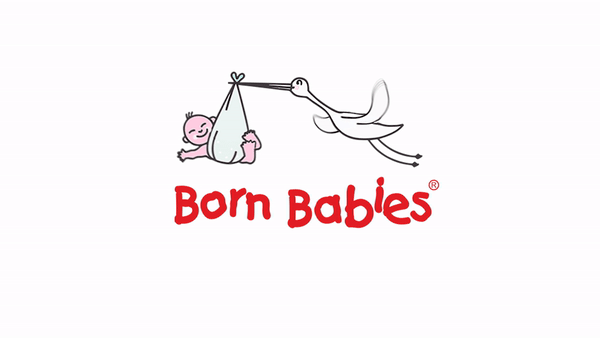Hey, congratulations on the tiny bundle of joy!
You've started the incredible breastfeeding journey, and a lot of questions may come up, particularly around food. "Can I eat that?" "Will it affect my baby?" You may feel confused by the contradictory recommendations made by people on the internet.
Breastfeeding is a wonderful way to nourish your child. However, it's normal to worry about whether you're giving them the finest possible nourishment. You may be confident that a healthy diet can fulfil it, but does it have to be difficult or restricting?
Let’s find out!
Focus on Nutrients, Not Restrictions
When it comes to foods to eat and avoid when breastfeeding, focus on what will nourish you and your baby. The key is a well-balanced diet packed with all the essential vitamins and minerals.
Think of your body as a magical kitchen, cooking delicious breast milk for your little one. You need a pantry filled with goodness to fuel this fantastic process.
Prioritise your proteins because they are essential for your baby, so stock up on nuts, fish, beans, and lean meats. Fruits and vegetables are a great source of vitamins A, C, and B12 to strengthen your immune system and your baby's growth and vision. Dairy contains calcium, which strengthens your baby's bones.
Tip: Your plate should contain lean protein sources, whole grains like quinoa or brown rice, and colourful fruits and vegetables. For that added kick, don't forget to add a sprinkle of nuts and seeds or a drizzle of healthy fats like olive oil.

Remember, foods to eat and avoid when breastfeeding aren't about restrictions but about mindful choices. Embrace the nourishing foods and let your body do the magic.
Foods to Eat when Breastfeeding
- Protein: Those tiny muscles and bones need protein for amazing growth. Lean meats, poultry, fish, eggs, beans, lentils, and paneer have precisely the same.
- Omega-3: Omega-3 supports your little one's visual and cognitive development. Salmon, chia seeds, flaxseeds, mackerel, & sardines have them.
- Calcium: Tiny teeth and bones need calcium. Intake Low-fat dairy products, leafy green vegetables, and plant-based milks for the calcium boost.
- Vitamins and Minerals: Your tiny baby needs these superpowers for their immunity, growth, & vision. Colourful fruits and vegetables, especially dark leafy greens, carrots, sweet potatoes, berries, and citrus fruits, will do this for you.
- Healthy fats: These good fats also keep you feeling full and energised for all those snuggles and playtime. Avocados, nuts, seeds, & fatty fish for brain development.
Last but not the least.
WATER, the magic ingredient. Remember to quench your thirst to keep that milk flowing freely. Water, herbal teas, low-fat milk, and even diluted fruit juices are your hydration heroes
Foods to Avoid when Breastfeeding
- Caffeine: Although small doses (less than 300 mg per day) are normally safe, caffeine can affect your baby's sleep or cause fussiness. To stay energised, choose decaf tea or coffee, water, or herbal infusions.
- Spicy Foods: While you enjoy those hot flavours, watch out for your baby’s reaction. Whether they cause gas or fussiness is still up for debate. Moderation is crucial despite the lack of evidence.
- Fish high in mercury: High levels of mercury are harmful to your baby's developing nervous system. Choose low-mercury options like salmon, tuna, and tilapia.
- Alcohol: Alcohol is a complete No-No. Prioritise their health and skip it. Even small amounts can harm your baby's development.
- Processed foods: Ditch the processed stuff. They're packed with unhealthy fats, sodium, and added sugars, offering zero nutrition.
Allergens Alert! Every baby is unique! While these guidelines are helpful, remember individual sensitivities or allergies can pop up at any time. Watch your baby's feeding behaviour and stool patterns for any changes - they might be clues! If you're concerned, consult a doctor or dietitian.
Born Babies
BORN BABIES is a store offering a careful selection of essentials to welcome your little one into the world. From diapers and bottles to cuddly clothes and playful walkers, they have everything you need to nurture your precious bundle of joy. So explore Born Babies and discover everything you need for your baby.
Conclusion
Though there is so much tension around foods to eat and avoid when breastfeeding, this is not about rigid restrictions. It's all about embracing the journey while enjoying seeing your little one grow.
Nourish your body with the right foods, and you’ll be gifting yourself and your baby a healthy foundation for a happy future. Follow a balanced and nutritious diet rich in fruits, vegetables, whole grains, lean protein, and healthy fats. Mindfulness is the key.
So, ditch the stress, intake body-nourishing foods, and enjoy this amazing journey with love and confidence!
Frequently Asked Questions (FAQs)
1. How to increase breast milk supply?
To increase your breast milk supply, you need to nurse your baby more, the more you nurse, the more is your supply. Don’t forget to hydrate yourself and take rest.
2. Which food should I avoid while breastfeeding?
Foods to avoid while breastfeeding are spicy foods, chocolate, onions, broccoli and cabbage. But anything in moderation, you are good to go.
3. How much caffeine is safe to consume while breastfeeding?
Caffeine causes fussiness in your baby, so it is recommended to consume 300 milligrams per day.
4. Should I eat for two while breastfeeding?
No, it is not necessary to eat for two while breastfeeding. While it is a common misconception, eating to hunger will suffice.
5. Which fruit increases milk supply?
Papayas and watermelons are the fruits that will increase your milk supply. Loaded with fibres, these fruits should be your go-to.


